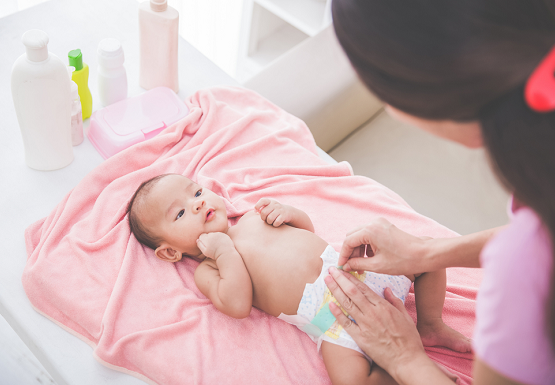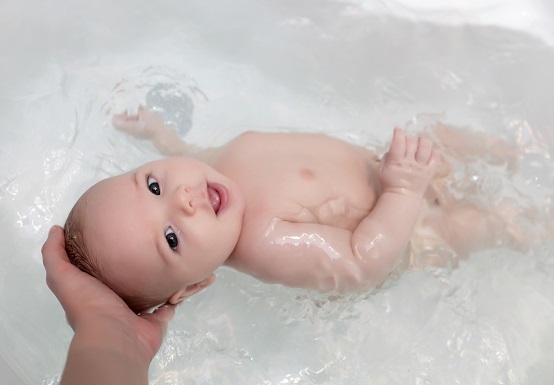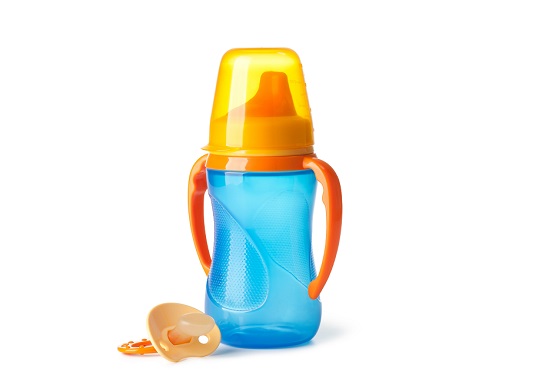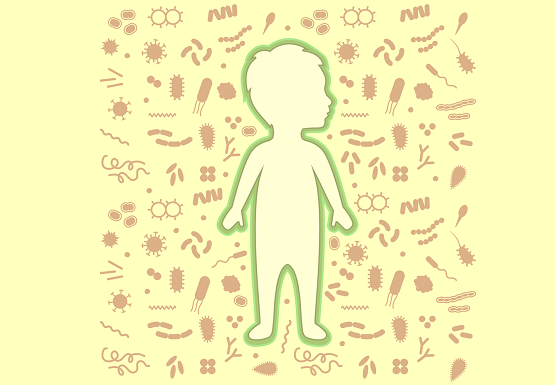Play and Development of Babies

Babies begin responding to their environment soon after they are born. Within a couple of days, they know the smell of their mother especially if she is breast feeding the baby. Responding to babies’ cues and providing them with toys in the early months of life is important.
VALUE OF PLAY
Over time, play helps in developing
- social skills
- thinking and problem solving skills
- language and communication skills
- confidence
- an understanding of the world around them
- physical skills
WHAT PARENTS NEED TO KNOW ABOUT BABIES 0 TO 6 MONTHS
Birth to 1 month
- Babies can see only short distances.
- Can see only high contrast images such as black and white.
- Clench everything with their hands. Give them soft objects that are easy to grasp.
- Responds to familiar faces and voices. Hold your baby close to your face while singing or speaking.
2 to 3 months
- Increased control over hands and legs.
- Developing hand-eye coordination. Soft colourful toys are enjoyed by babies as are rattles that make a pleasant sound.
- They are able to watch moving things for a short while. Mobiles should be placed in appropriate areas. Babies need to be able to exclude the mobile from their visual field if they are tired of watching the mobile.
- Rolls over on to tummy. Babies enjoy tummy time during this stage and changing their physical position is important.
4 to 6 months
- From 3 months onwards babies are capable of joint attention with their mother, father, brothers and sisters.
- Roll from side to back, specific age depends on the child.
- Grasping ability increases and between 3 – 6 months many babies can grasp and shake a rattle.
- Motor skills increase.
- Babbling and vocalisation increases from 3 to 6 months.
- Signs of teething
WHAT PARENTS NEED TO KNOW ABOUT BABIES 7 TO 12 MONTHS
As with the early infancy period, there is a lot of individual difference in children’s development throughout early childhood. Some babies begin walking at 9 months, others 12-14 months. However, later development does not mean that a child has a problem. It is only when there is a long delay in development that parents should be concerned. If ever worried however, parent should seek medical advice as if there is a real problem, early intervention is important.
As mentioned earlier, the temperament of a child can make a difference to the rate of their development. Some babies are very active, others more placid. Also, the environment plays a part in modifying development due to opportunities provided.
For example, if a baby is placed in a bouncinette or rocker for long periods of time their physical development may be delayed.
If a baby becomes very heavy, they may not crawl or walk early; however, it depends on a range of developmental factors.
7 to 12 months: Babies become mobile and their world enlarges
7 to 9 months
- Becomes mobile with crawling – any time from 6 months onwards.
- Sits with support.
- Eyes and hands coordinated.
- Brings objects together to bang.
- Can hold a bottle, can grasp with the whole hand.
- Stranger anxiety can begin, can differentiate between primary caregivers and strangers.
- Recognises familiar people and responds to them.
- From 8 – 10 months, begins to clap and wave.
10 to 12 months
- Walking from approx. 10 – 12 months onwards this expands the baby’s world.
- Enjoys being near other babies, children, some early socialisation can occur.
- Eyes and hands coordinated.
- Responds to own name.
- Shows sustained interest in others.
- Vocalisation increases and pointing and gestures form part of communication.
- May start to walk.
- As the finger muscles develop, babies start picking up small objects with fingers.
WHAT CAN PARENTS DO TO FOSTER DEVELOPMENT THROUGH INTERACTING AND PLAYING WITH THEIR BABY IN THE FIRST YEAR OF LIFE?
- Interaction with your baby is of prime importance – a parent is more important than any toy!
- Talk to your baby and tell them what you are doing.
“Lee Lee, time for a feed, let’s go to a comfortable chair.”
“Wei Ling, time to change your nappy.”
- Respond to your baby’s cues – listen, look and spend time with your baby. These are precious moments to bond and to develop trust in your baby that will last a lifetime.
- Responds to own name.
- Relax when you are feeding baby.
- Comfort your baby when he/she is distressed.
- Babies usually settle when comforted. This builds an important sense of security and the development of trust.
CONCLUDING COMMENTS
Babies love playing, interacting and connecting with their parents and caregivers. The time, touch and the responsiveness of the adults towards the babies are the most important activities for the babies’ development. Give your baby, affection, time and appropriate toys so that they can grow and develop to their optimum level.
Credits to NTUC First Campus Co-operative Limited



